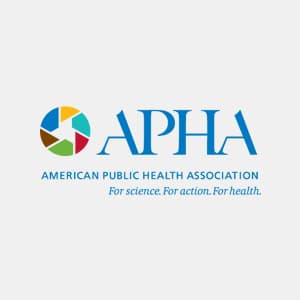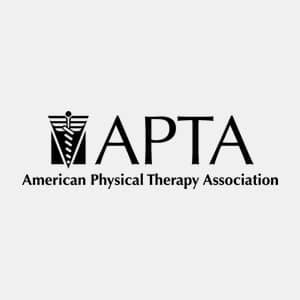Get Matched With General Health Programs
General health describes a broad set of health professions, such as health educator, that apply science and technology knowledge to the care of patients within the healthcare industry. They may support disease prevention or work as a patient care advocate. This category does not include medical doctors, dentists, pharmacists, or registered nurses. General health-related professionals work in major career paths or areas such as diagnostics, therapy services such as physical therapy or occupational therapy, community health, health informatics systems, research and development, healthcare management or healthcare administration, and other specific health services provided by health sciences graduates. Sometimes these are called allied health occupations or health science professions; general health is a field of professionals dedicated to the prevention, diagnosis, and treatment of a wide range of illnesses, diseases, and conditions. These professionals often work within a team with many disciplines to customize a program of care for individuals or classes of patients. Students interested in the health science field may earn a health sciences bachelor's degree or even a graduate or professional degree from a health science program, or other programs with health science focuses, to boost their work in the field. Luckily, you may be able to choose an online healthcare degree if you are unable to attend in person. A bachelor's degree program with a focus in health informatics or healthcare administration are also excellent choices, providing access to healthcare jobs in a variety of healthcare systems all over the country.
The goal of all general health or health sciences careers is to provide the best possible patient outcomes. General health science professionals work in wellness, prevention, and education to promote early detection of disease and other positive outcomes. These professions aim to help reduce the severity and occurrence of preventable diseases. General health careers are more accessible than some other medical and healthcare careers that require many years of costly education, training, licensure, and clinical experience, such as those that require you to attend medical school. Even so, students interested in pursuing a career in one of these health-related or health professions should be looking to earn at least a bachelor's degree in health science and heading into the field as health sciences graduates. There is a huge variety of Bachelor of Science in Health Sciences degree programs available with content designed to open the door to your new career in the healthcare industry. And those with their eye on healthcare administration or healthcare management can also use this general healthcare degree to pivot into that field.
Compare Popular Online General Health Programs
How to Earn an Online Degree in General Health
- Select a program that meets your career goals
- Find an accredited school
- Decide which level of online education can meet your goals among associate, bachelor's, and master's degree programs
- Apply for admission
- Apply for financial assistance and scholarships
Typical General Health Degree Requirements
The healthcare field shows promise as a major source of jobs in Bureau of Labor Statistics (BLS) estimates through the year 2021. The demand for health services grows in response to greater numbers of insured persons, longer lifespans, and greater awareness of the benefits of regular healthcare.
Health degrees emphasize science, technology, and communications. Graduates must be comfortable with computer-based devices and adaptable to new technology and innovations.
Typical General Health Certifications Needed
Licensing and certifications are part of the health science field, and they may be required for some occupations by state or federal law. Like medical doctors, psychiatrists, and dentists, many health science professionals must get licensed by a state board to legally practice their profession. These typical licensing requirements apply to physician assistants, massage therapists, and to some less expected professions like medical laboratory technicians. In health science fields that do not require licensing, the state may ask for formal registration and a background check.
Find Your Online General Health Program
Among the health science professions that do not require licensure or registration, many employers nonetheless want to have some assurance of quality and experience beyond college or university training. These employers may require certifications from private non-profit organizations that promote professional standards in their fields. Some frequently encountered examples are certified dieticians and registered health and wellness coaches.

Academic Standards for General Health Degrees
An online Associate in Health Science is a two-year course of study. An online associate degree usually consists of about 60 credit hours of focused and more general coursework. The general education coursework includes writing and oral presentation skills.
An online bachelor’s degree is a four-year course of study. Over four years students complete around 120 credit hours’ worth of classes. The first two years consist of general education and basic health science studies. During the third year, students have the option to elect a specialization. The major study coursework would fill the final two years along with any concentration that the student might select.
An online Master’s in Health Science is a two to three-year program of study. The master’s level study prepares graduates for careers as educators, managers, and researchers. The Master’s degree in health science also prepares students for further research and study leading to a doctoral level degree.
Doctoral degrees in health science prepares graduates to be leaders, administrators, college-level faculty, and other advanced roles in one or more health sciences. The Doctoral degree typically takes another two years of study after the master’s is attained. The course of study may include a dissertation or some other type of capstone research project.
Exam/Experience Needed for General Health Degrees
There is a wide range of professions and types of educational institutions for getting online degrees in health science. These health sciences degree programs can lead to non-clinical careers in the healthcare industry such as health informatics, medical coders, medicasl secretary work, community health, etc. or can lead to careers in occupational therapy, physical therapy, and more. Therefore, no single qualifying exam applies to all of them. However, most higher education institutions require qualifying exam scores on the ACT or SAT standard college-preparedness examinations.
Online associate degrees require a high school education or a GED. Students that have strong backgrounds in language, math, and sciences may have an advantage in pursuing an associate or bachelor's degree in health science. Bachelor’s degrees also require a high school diploma or GED but students with an associate degree from an accredited college or school can reduce the number of hours of study by up to one-half.
Online master’s degrees require a bachelor’s degree in health science, healthcare, or a related field. The master’s degree typically requires two to three years of study that includes some extensive clinical education and science courses. If the bachelor’s degree is in an unrelated field, then the master’s program may ask for additional coursework in core courses, particularly in math, biological sciences, human anatomy and physiology, community health, etc.
Certification can help. Certificates and a high school education can be a place to start. Students can enter many entry-level technician and assistant jobs in health science with a certificate from a specialized or vocational school. These certificates can be a stepping stone that gets a student into the health science field, gives them practical experience, and on-the-job training or mentoring. For a wider opportunity, students should get a degree in health science.
Online Associate's Degree in General Health
An online associate degree in health science takes about two years of full-time study. An associate degree equips graduates with a deeper understanding of their health science field than a certificate program, and it provides a foundation of general education. Students learn laboratory procedures, following protocols, and performing various tests and procedures in their fields of study.
Coursework for the Online Associate degree in Health Science includes:
- Biological Sciences
- Medical Terminology
- Pharmacology
- Human Anatomy
- Physiology
- Medical Protocols
- General Health Work Environments
Online Bachelor’s Degree in Health Science
An online bachelor’s degree prepares you for a higher-paying, more complex position in the health science field. Most students begin their career with a bachelors, and you might find yourself up against stiff competition for positions if you have an associate degree and other applicants have bachelors.
Coursework for an online degree in General Health includes:
- Foundations of Psychology
- Writing for the Professions: Science and Engineering
- Computer Applications
- Organizational Communications
- Ethical Issues in Healthcare, Science, and Engineering
Concentrations for Online Bachelor’s Degree in General Health:
Health Law and Legislation, Public Health,
Online Master’s Degree in General Health
Once you’ve completed an online bachelor’s, you have the option to continue your education with a master’s level degree. This degree will prepare you for a leadership or management position in the health science field and is required for many educational positions.
Coursework depends on the specialization field but would include similar courses for each discipline. Coursework for an online Master’s Degree in General Health includes:
- Infectious Diseases and Controls
- Healthcare Management
- Health Research
- Kinesiology
- Clinical Specialization Coursework
Concentrations for Online Master’s Degrees in General Health:
Public Health, Healthcare Administration, Health and Rehab Leadership, Pre-PhD Pathway.
General Health Education, Experience, and Salaries
There are direct relationships between median salary and the educational level of employees. The data shows that salaries rise dramatically as people gain higher levels of education. Work experience plays a similar role as the levels of education. People continue to gain in salary by gaining experience in their jobs and fields. Typically, entry-level salaries are far lower than the mid-career averages for persons working between five to ten years. Salaries usually rise again and the late-career averages typically show a significant rise over the mid-career mark.
Education Level and Median Compensation Ranges
- Secondary Education - $51,500
- Associate Degree - $57,100
- Bachelor’s Degree - $79,800
- Master’s Degree - $87,700
- Research Doctorate - $94,100
Health Science Fields of Study Median Salaries
The eight below-listed items represent a small cross-section of health science fields of study.
- Health and Wellness involves prevention and efforts to keep people symptom-free through proper diet, exercise, and regular medical care.
- Nutrition is a field of study that supports or contributes to a large number of treatments, diagnostics, and research occupations in the health science field.
Find Online General Health Schools
- Rehabilitation involves physical, occupational, and specialty rehabilitation studies like respiratory rehabilitation. These treatment and support fields are critical parts of positive patient outcomes both for diagnosis, treatment, and cures.
- Speech pathology involves diagnosing and treating diseases and other severe conditions that affect or interfere with speech.
- Biotechnology involves using living mechanisms and organisms to make medical and health products and processes. In health science, it involves nutrients, medicine, hormones, and microorganisms.
- Critical Care is the study of medical procedures for patients in life threatening conditions. It involves specialized protocols, devices, and techniques.
- Diagnosis and Treatment is a foundational field of study in health science. In practice, diagnosis supports early detection of disease, prevention, and is a linchpin for successful treatment.
| Field of Study | Associate | Bachelors | Masters |
|---|---|---|---|
| Health & Wellness | N/A | $52,163 | $61,740 |
| Medical Terminology | $37,142 | $53,052 | $58,768 |
| Nutrition | $42,500 | $51,321 | $57,321 |
| Rehabilitation | $49,000 | $60,083 | $80,000 |
| Speech Pathology | $36,913 | $57,446 | $70,000 |
| Biotechnology | $48,201 | $66,641 | $70,000 |
| Critical Care | $55,483 | $76,287 | $89,355 |
| Diagnosis & Treatment | $39,492 | $43,027 | $59,841 |
Salary Ranges by Occupation and Experience
Annual Salary Ranges by Occupation
| Occupation | Entry-Level | Mid-Career | Late-Career |
|---|---|---|---|
| Dental Hygienist | $56,100 | $61,200 | $62,700 |
| Pharmacist | $102,500 | $120,000 | $121,500 |
| Respiratory Therapist | $48,800 | $57,200 | $63,600 |
| Athletic Trainer | $39,300 | $46,300 | $56,500 |
| Health Information Technician | $34,400 | $35,100 | $64,000 |
| Speech Pathologist | $53,600 | $66,500 | $74,900 |
| Audiologist | $64,500 | $71,600 | $76,500 |
| Health Administrator | $55,800 | $75,000 | $91,800 |
General Health Occupations
- Dental Hygienist
The hygienists perform essential parts of the overall treatment of patients in the dental office or clinical setting. Their duties include x-rays, examinations, cleanings, and patient education. Hygienists help dentists identify problems and disorders and they work closely with dentists to deliver a plan of care - Pharmacists
The pharmacist plays a key role in providing prescription medications and in advising the public on the use of prescription and over-the-counter medications. Pharmacists can administer injections such as vaccines and warn of potential side effects and dangerous drug interactions. - Athletic trainer
Athletic training is a sometimes-surprising part of general health studies, but hospitals and clinics have certified trainers on staff. Athletic injury and recovery are essential services in the health field. - Audiologists
An audiologist performs diagnosis of hearing disorders and develops plans for treatment including referrals to other specialists. Audiologists must work closely with patients under difficult communication limits. - Health Administrator
Administrators are upper management or executive positions that manage a staff of medical care providers and support staff functions. Administrators work in many environments and settings including hospitals, clinics, and care facilities. - Health Information Technician
Technicians gather and categorize patient information and perform analysis as needed. Their efforts include maintaining patient records and updating records. Health information technicians work in hospitals, clinics, and medical offices. Many technicians grow into other specializations through work experience. - Respiratory therapist
Respiratory therapy involves medical issues with breathing and related heart and circulatory matters. The diseases encountered include cystic fibrosis, asthma, and Chronic Obstructive Pulmonary Disease (COPD). Respiratory therapy involves working with patients to manage and treat conditions. - Speech Pathologists
Speech and language pathologists evaluate and treat swallowing and speech disorders. The common settings are hospitals and clinics, but they also maintain independent practices. They provide education and therapy to help patients resolve or improve conditions.
Important Questions to Ask (FAQ)
How long does it take to earn a General Health bachelor's degree online?
Students can complete an online bachelor’s degree in health science online in four years or eight semesters. Many students use online education to accommodate employment, family, and business obligations. These students often attend their university part-time. However, schools sometimes set limits for completing a Bachelor of Science degree program online, which varies by the institution’s policy. They may easily run between six and eight years.
How much does an online general health bachelor’s degree cost?
The costs of college-level education depend on the type of school or college, and each school sets its rates for tuition, fees, and on-campus housing. The average costs of tuition, fees, and living expenses vary for public and private schools and the difference in tuition charges for in-state vs out-of-state students at public schools. The items below describe average ranges of total annual tuition costs for associate, bachelor’s, and master’s degrees students interested in pursuing a degree in health science may find at public or private university.
- Master’s at private schools $41,450 per year
- Master’s at public schools $41,450 per year
- Associate at public schools $13,585 per year
- Associate at private schools $24,602 per year
- Bachelor’s at private four-year schools $46,900 per year
- Bachelor’s at public schools at in-state rates $20,800
- Bachelor’s at public schools at out-of-state rates $36,420
Does the school have the major(s) you’re considering?
Students should carefully review the course offerings and lists of majors at any school under consideration. The school may be an excellent institution, but it may not fit the student’s goals for education, jobs, or career. Students who align their goals with their education make better progress towards their objectives. When considering a major, students should also find any concentrations or specializations they wish to pursue. Every school has strengths in its faculties and resources. Students should take advantage of situations that add extra benefits and contributions to their career preparations.
How many students graduate “on time,” in four years?
 The US Department of Education provides the College Scorecard (https://collegescorecard.ed.gov/) website that has information on student experiences including graduation rates. Students should pay particular attention to graduation rates as they may predict the typical experience. On-time graduation can save thousands of dollars for students because each extra year spent in school can increase the cost by up to 25% of your original estimate.
The US Department of Education provides the College Scorecard (https://collegescorecard.ed.gov/) website that has information on student experiences including graduation rates. Students should pay particular attention to graduation rates as they may predict the typical experience. On-time graduation can save thousands of dollars for students because each extra year spent in school can increase the cost by up to 25% of your original estimate.
What kind of accreditation does the online program hold? How is it regarded in the field?
Regional accreditation is the best form of academic validation for an entire school or a particular health education program. Some national accreditation works well, particularly for specialized schools that have health science education but do not have schools of health. The school’s accreditation affects the value and usefulness of a college degree.
Search Programs Offering General Health Majors
Accreditation promotes acceptance of the degree by employers, reviewers of your educational qualifications, and other educational institutions. Accreditation affects the availability of federal financial aid because only accredited schools can participate in federal student loan programs. The accreditation is part of a larger image of the school in the educational and business communities. The reputation of a school can be an asset for students and graduates as they transition from education to work. Top schools attract top students, and employers flock to the schools they prefer when seeking new talent.
General Health Scholarships
-
Tylenol Future Care Scholarship
Amount: $5,000 to $15,000
Application Dates: May 1- June 28This scholarship is awarded based on GPA, academic record, and community involvement. The scholarship provides financial assistance to students enrolled in healthcare fields that involve actively treating patients. Eligible students must be US residents, enrolled in an accredited school, and have completed one year of study.
-
Gates Millennium Scholars
Award: Amounts vary based on financial need and are determined by the cost of tuition, fees, books, and living expenses for the academic year.The $1.6 Billion initiative focuses on minority students in any discipline including science and public health. The goal is to foster increased participation of under-represented groups. Eligible applicants must be US citizens or legal residents, have a 3.3 GPA, and be part of one or more minority groups including African American, American Indian, Alaskan Native, Asian Pacific Islander American, and Hispanic American students. Upon completing an online bachelor’s degree, Gates scholars may request funding for graduate study in public health or a related general health discipline.
-
Institute of Oral Health (IOH) Scholarship Program
Award: Varies by scholarship
Deadline: February 1Eligible applicants must be American Dental Hygiene Association (ADHA) members. The association accepts student members. The program supports career advancement for dental hygienists and dental hygiene students. Applicants must select one of the listed available scholarships.
-
Indian Health Service Scholarship Program
Award: Tuition and fees plus a monthly stipend
Deadline: April 13Eligible students include members and descendants of American Indian and Alaskan Indian tribes. This comprehensive scholarship provides support in exchange for a commitment to serve in the Indian Health Service in the student’s chosen field of practice.
-
American Health Information Management Association (AHIMA) Foundation Merit Scholarships
Award: Varies by program enrollment
Deadline: Varies (TBA)The scholarship program supports students studying health information technology and health information management. The scholarships have a section for bachelor’s and master’s degree students, associate degree students, and doctoral students.
-
American College of Medical Practice Executives (ACPME) Scholarship Fund
Program Amount: $2,500 to $5,000
Deadline: varies (TBA)The ASCPME gives scholarships to students enrolled in degree programs in public health, healthcare administration, and related fields. Eligible students must be enrolled for the upcoming academic year.
Professional General Health Organizations
- AAPS
- NSSLHA
- AOSA
- APHASA
- APTASA

AAPS
American Association of Pharmaceutical Scientists
American Association of Pharmaceutical Scientists- the AAPS is an educational, networking, and advocacy organization that promotes pharmaceutical sciences which drive cures and prevention. The organization focuses on education, innovation, and integrity. Their policies encourage inclusiveness and diversity in the professions. Students can join the organization and benefit from the educational, job placement, and career development resources.

NSSLHA
National Student Speech, Language, and Hearing Association
Website: https://www.nsslha.org/
This organization promotes student participation and develops student leadership as the future leaders of the industry. The organization provides education and information on trends. Students that participate can use opportunities to network and gain valuable mentorships from industry practitioners and leaders.

AOSA
American Optometric Students Association
Website: https://theaosa.org/
This association provides educational resources and industry information for students studying in one or more fields of optometry. The benefits to doctors and other optometry professionals include the latest research and technological innovations for diagnosis and improvement of vision. The association promotes the transition to value-driven healthcare.

APHASA
American Public Health Association-Student Assembly
Website: https://www.apha.org/apha-communities/student-assembly
The APHA is the largest student organization for developing the next generation of public health leadership. The organization offers essential benefits such as networking, information, access to internships, scholarships, and educational resources.

APTASA
American Physical Therapy Association- Student Assembly
Website: http://www.apta.org/studentassembly/
This is an organization dedicated to increasing student involvement in the physical therapy field. The association advocates for better terms for students and assistants in education, jobs, and career opportunities.
Choosing an Accredited College
Accreditation ensures students that the school, college, or university offers education that meets high standards for quality, completeness, and consistency. The US Department of education and the Council on Higher Education authorize agencies to conduct accreditation. The most widely accepted type of accreditation is regional institutional accreditation and regional programmatic accreditation.
The DOE-approved accrediting agencies offer institutional accreditation that covers all of the schools programs. In the field of public health, some specialized accreditation agencies oversee schools that offer career and vocational type education. For example, the CEPH accredits public health type of programs both as schools of public health and as programs of instruction in public health.
Some specialized accrediting agencies recognized for general health or health sciences include the below-listed groups.
- Commission on Accreditation of Allied Health Education Programs (CAAHEP)
- National Accrediting Agency for Clinical Laboratory Science (NAACLS)
- Accrediting Bureau of Health Education Schools (ABHES)
Online vs. On-Campus vs. Hybrid
Today, students can remain engaged in their businesses, jobs, and other important obligations while attending school full or part-time. Students can choose to attend classes on-campus, online, or in a mix of online and on-campus courses. Online learning is asynchronous, which means students do not need to gather at the same place and time to participate in learning.
Online students can access resources from anyplace with an Internet connection, and the flexibility of schedule makes education reachable for nearly everyone. The options for attending help students design the type of educational experience that suits their time, resources, and personal situation.
Frequently Asked Questions
Does the College Have Post-Graduate Job Placement Help and Assistance?
Colleges and universities can provide extensive job placement and career development support for students in their final years as well as for recent graduates. Students should look for this feature when selecting a school. A vigorous assistance program is a benefit that helps students at the critical start of their job search and during their career in general health.
A school is more than teachers and classrooms; it is a vibrant community of alumni, interested businesses, corporations, charitable foundations, and supporters. A school community also includes thousands of potential employers that respect and appreciate the quality of the school’s education programs and its graduates. The larger school community is an excellent resource for networking, job offers, mentoring, getting hired, getting internships, and real-world project experience.
Why You Need to Consider How Rating/Accreditation Can Affect Your Salary
A school’s accreditation and ranking can affect your salary. The reputation of a school and the type of accreditation it holds affect the value of an online degree. A degree has value for the things one can do with it. Typically, graduates can get jobs, start careers, continue toward higher education, or go into business. Accreditation and rankings affect all these potential opportunities. Employers, businesses, and educational institutions regard accreditation as an assurance that the degree represents a quality learning experience.
Accreditation ensures that the school meets the highest standards for the entire region for instruction, resources, facility, and faculty. The broad acceptance of the quality of the degree adds to value. Salaries will be higher, and graduates will have a wider range of choices when holding an accredited degree from a respected school.
What courses will I take in a program in the health science field?
As health science is a general field that might require a breadth of knowledge in many areas, you can expect to take a variety of classes. These might include courses in anatomy, dentistry, epidemiology, nutrition, pharmacy, physiology, and more.
Are general health sciences degrees easy?
Generally, no one would refer to a hard science degree as easy. However, many find that a health sciences degree is easier to complete than a life or physical sciences degree. This may be due to it having fewer requirements for higher-level math or the fact that these degrees focus less on statistics, analysis, and lab work. The fact that this is often an entry-level degree can make them easier to earn than other career paths in healthcare.
What is the difference between health science and nursing?
The major difference between these two degrees is that, while nursing focuses on training you to care for patients directly, health sciences trains you to be a science educator. This means that you are more likely to help people learn how to keep themselves healthy, making your role more preventative, while a nurses role is more reactive and hands-on.
